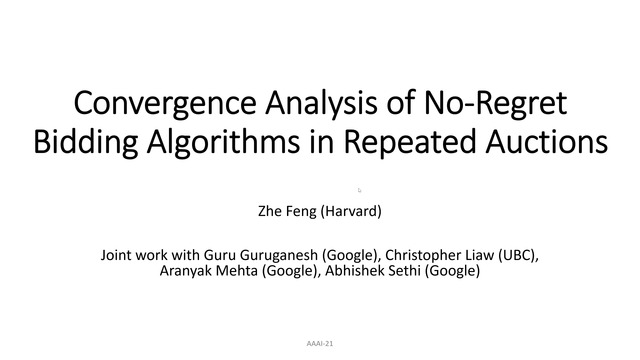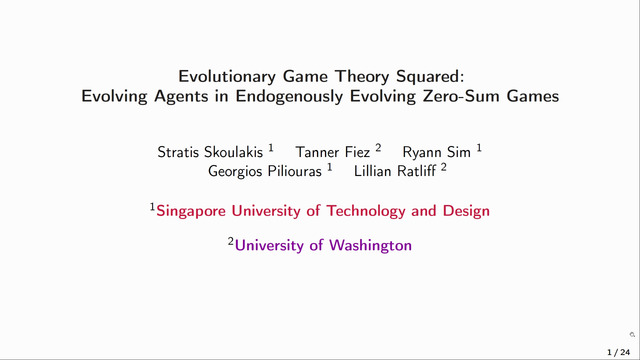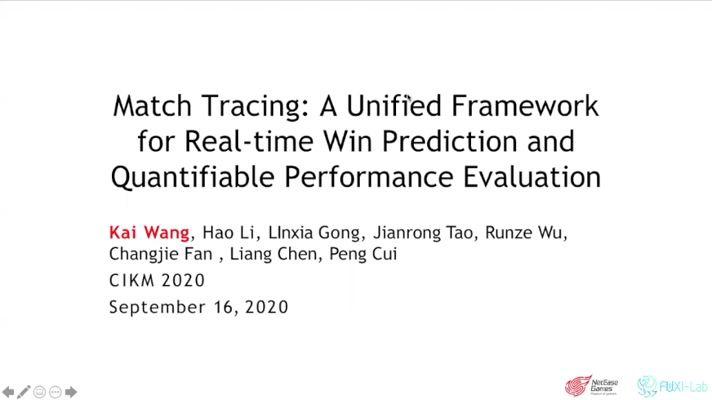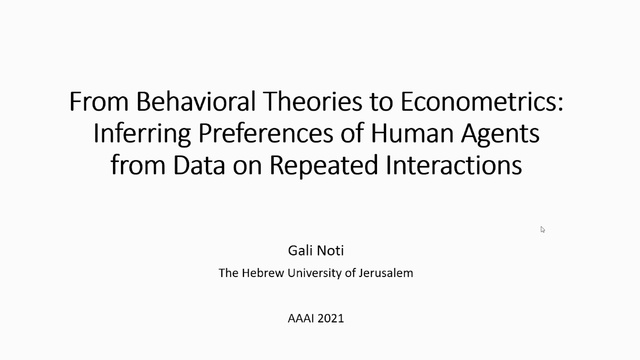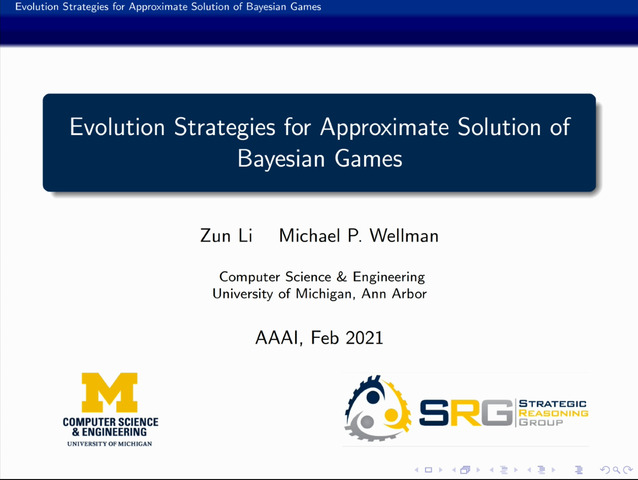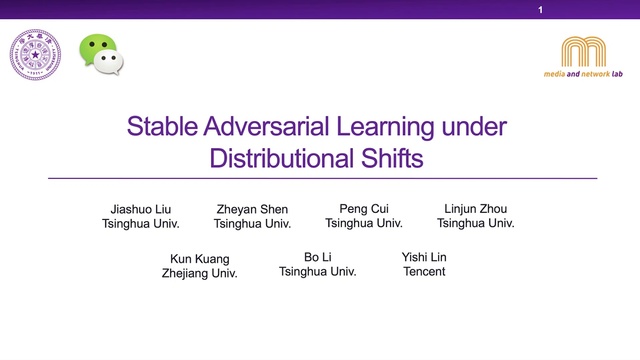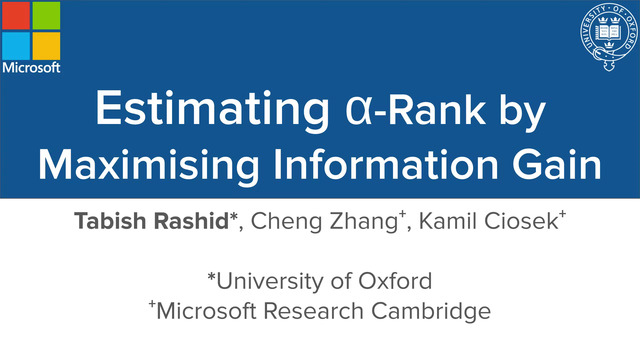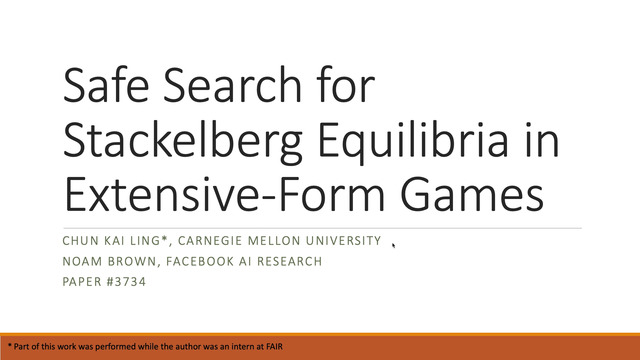Abstract:
In this paper, we study the problem of learning the skill distribution of a population of agents from observations of pairwise games in a tournament. These games are played among randomly drawn agents from the population. The agents in our model can be individuals, sports teams, or Wall Street fund managers. Formally, we postulate that the likelihoods of outcomes of games are governed by the parametric Bradley-Terry-Luce (or multinomial logit) model, where the probability of an agent beating another is the ratio between its skill level and the pairwise sum of skill levels, and the skill parameters are drawn from an unknown, non-parametric skill density of interest. The problem is, in essence, to learn a distribution from noisy, quantized observations. We propose a surprisingly simple and tractable algorithm that learns the skill density with near-optimal minimax mean squared error scaling as $n^{-1+\varepsilon}$, for any $\varepsilon>0$, so long as the density is smooth. Our approach brings together prior work on learning skill parameters from pairwise comparisons with kernel density estimation from non-parametric statistics. Furthermore, we prove information theoretic lower bounds which establish minimax optimality of the skill parameter estimation technique used in our algorithm. These bounds utilize a continuum version of Fano's method along with a careful covering argument. We apply our algorithm to various soccer leagues and world cups, cricket world cups, and mutual funds. We find that the entropy of a learnt distribution provides a quantitative measure of skill, which in turn provides rigorous explanations for popular beliefs about perceived qualities of sporting events, e.g., soccer league rankings. Finally, we apply our method to assess the skill distributions of mutual funds. Our results shed light on the abundance of low quality funds prior to the Great Recession of 2008, and the domination of the industry by more skilled funds after the financial crisis.


